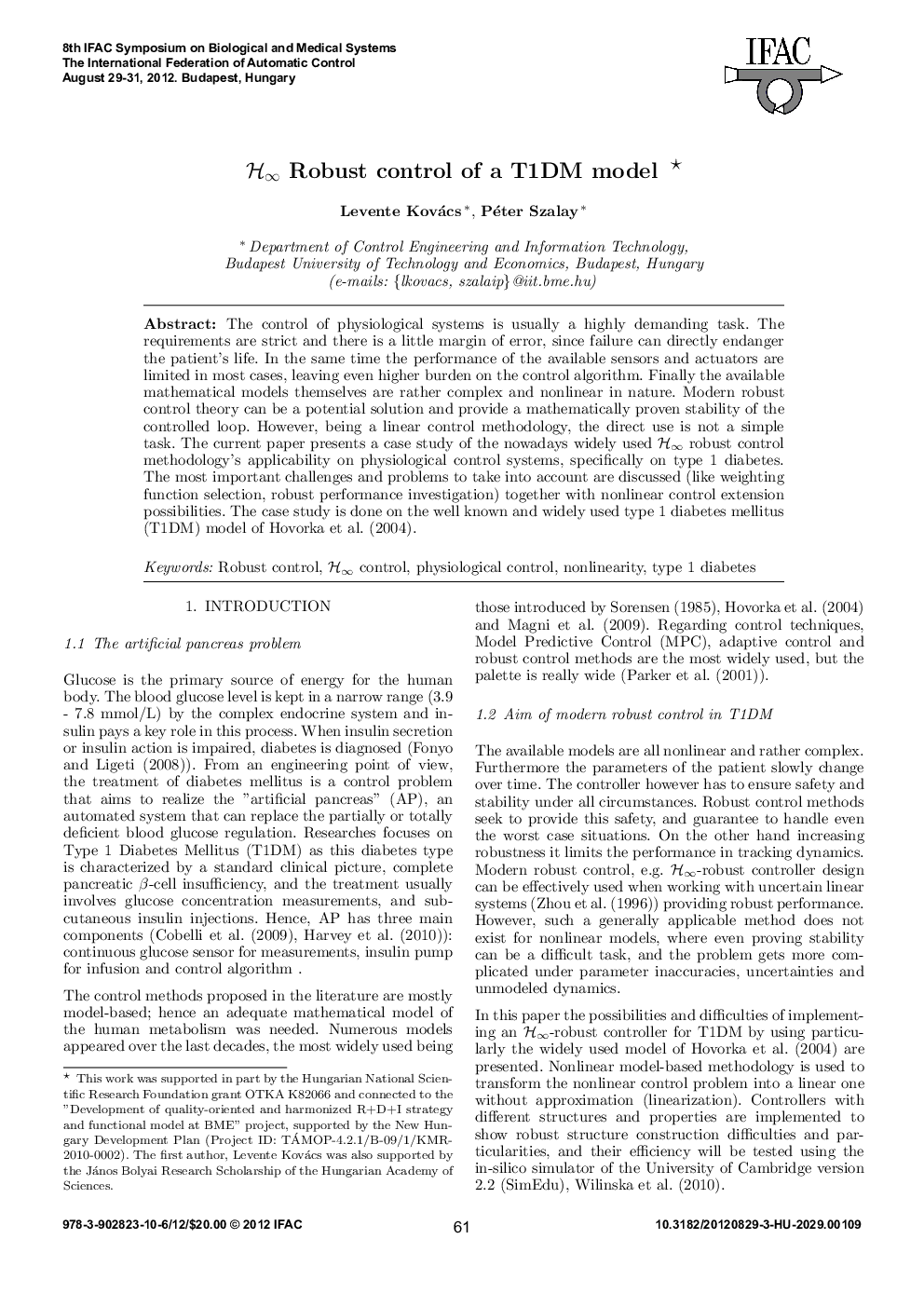| Article ID | Journal | Published Year | Pages | File Type |
|---|---|---|---|---|
| 718246 | IFAC Proceedings Volumes | 2012 | 6 Pages |
The control of physiological systems is usually a highly demanding task. The requirements are strict and there is a little margin of error, since failure can directly endanger the patient's life. In the same time the performance of the available sensors and actuators are limited in most cases, leaving even higher burden on the control algorithm. Finally the available mathematical models themselves are rather complex and nonlinear in nature. Modern robust control theory can be a potential solution and provide a mathematically proven stability of the controlled loop. However, being a linear control methodology, the direct use is not a simple task. The current paper presents a case study of the nowadays widely used ℋ∞ robust control methodology's applicability on physiological control systems, specifically on type 1 diabetes. The most important challenges and problems to take into account are discussed (like weighting function selection, robust performance investigation) together with nonlinear control extension possibilities. The case study is done on the well known and widely used type 1 diabetes mellitus (T1DM) model of Hovorka et al. (2004).
